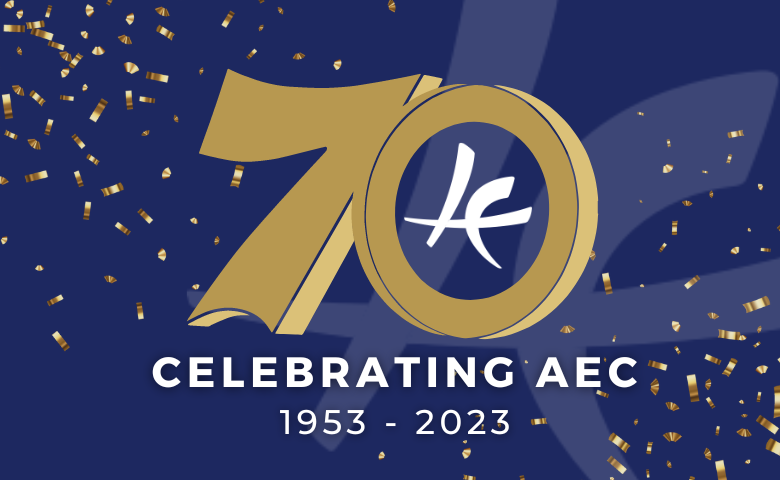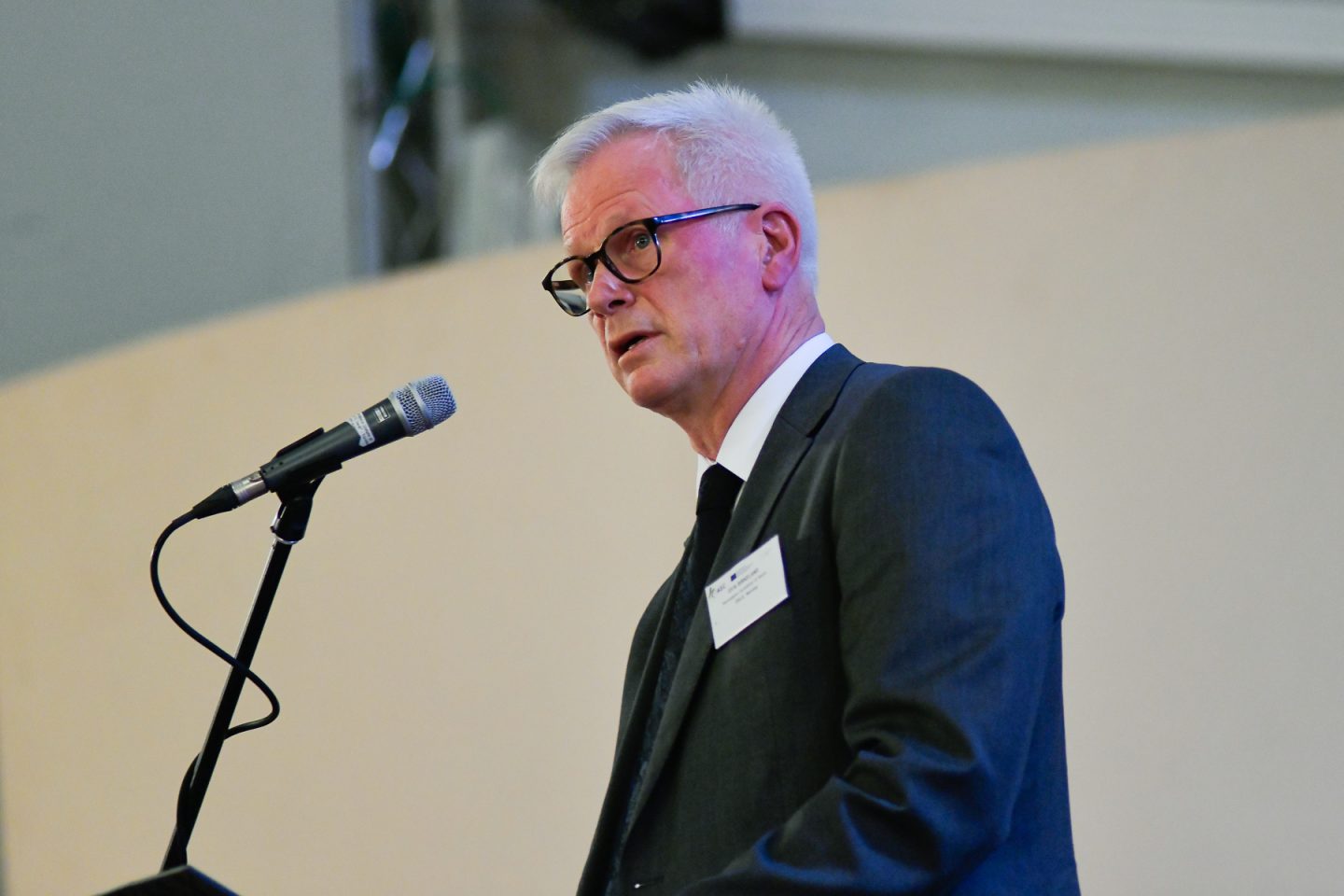This year, AEC celebrates its 70th anniversary, and as former President, I am honoured to contribute to the celebration by looking back at some of the history of the association and at my time as President.
I salute and acknowledge all colleagues from the past and the present who have contributed to making the AEC, the important and prestigious organisation that it is today.
AEC 1953 – 2023
At an international music conference at Bad-Aussee and Salzburg in July 1953, the first steps were taken for the establishment of the AEC, initially as a rector conference. At this conference and in the following years, topics were addressed that still can be found on our agenda, such as recognition of music education, student exchange, the institutions’ autonomy and management, and the education of young music talents. To ensure dialogue and participation across the two major power blocs, the Association had two elected presidents throughout the Cold War, one in the West and one in the East-Europe.
The history of AEC until 1988 can be studied in a tiny booklet called “History of AEC” by the former General Secretary, Claude Viala. The rest of our Association´s history is still waiting to be written.
My first AEC meeting was at the Congress in Birmingham in 2005. Here I experienced a lively and gentle atmosphere with lots of people and languages to hear. However, I soon realized that, after the Congress, I would have to make a closer study, to fully understand the international tribal language of higher music education. Maybe I am not the only newcomer who has had this experience.
At that time, AEC had launched the first set of the Polifonia projects (2004-14) in the ERASMUS Network to tune Higher Music Education (HME) in line with the signals of the Bologna process and at the same time bring forward the qualities and specific challenges within our field. These projects involved a high number of member institutions and resulted in a series of practical handbooks that were going to make a substantial contribution to modernizing and establishing common standards within HME in Europe. For some institutions, this became the start of a journey from Vocational- to Higher Music Education.
Two years later, in 2007 I was elected as a member of the AEC Council which proved to be a very pleasant and inclusive collegium, chaired by President Johannes Johansson and with CEO Martin Prchal as a driving force in our work. As Council members, we were invited to come forward with our ideas and opinions and to share experiences from our home institutions.
At the Norwegian Academy of Music (NMH) in Oslo, for the two previous years, we had t been working on strategic processes, involving the staff in developing an institutional culture for collaboration and further development. High on our list of priorities was to use internationalization as a tool for quality enhancement, and to strengthen NMH´s interaction with society, with the professional music life as with general music education and cultural schools. With these exercises in mind, I entered the AEC Council, sharing ideas and opinions together with 11 other members of our collegium, representing very different institutions in the European landscape of HME.
During the following years, it was striking to experience how ambitions for renewal and increased societal relevance in HME were growing in the AEC leadership. This has been further explored and developed in interaction with the membership, namely not least through AEC´s main projects for Creative Europe, Full Score, AEC – SMS, and ARTEMIS.
A result could also be seen in AEC´s Mission, which got a wider perspective than before:
AEC works for the advancement of Higher Education in the performing arts, primarily focusing on music. It does this based on three pillars:
- Fostering the value of music and music education in society
- Enhancing quality in Higher Music Education
- Promoting participation, inclusiveness, and diversity
In the Creative Europe projects, we have so far prioritized the work for renewal within our institutions and the AEC. We have started with promoting inclusiveness and by asking how we in a better way can support our students in their learning processes and in developing individual careers.
Let us hope that AEC and HME in the coming years, through ARTEMIS- and other developmental projects, will succeed in developing new patterns for strengthened interaction and artistic contribution to society.







